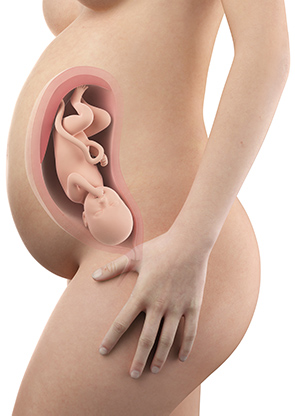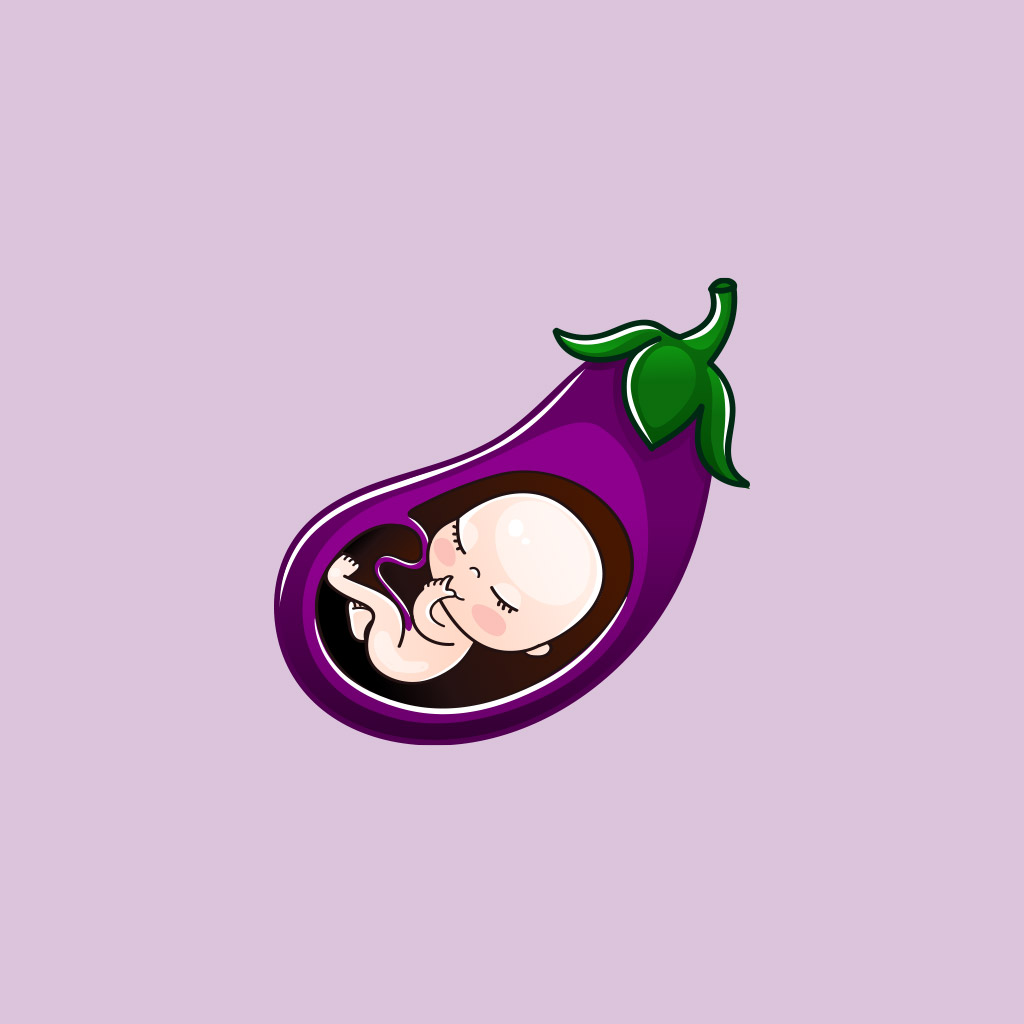Welcome to week 32! You’ve made it so far, and your baby is now about the size of a squash, steadily getting ready for the big day. With just two months left to go, you may be feeling both excited and a little nervous — which is perfectly normal. This is a meaningful stage where you can start to notice big changes, not just in your body but also in your baby’s growth and abilities.
At this point, your baby weighs almost 4 pounds and measures around 16 to 17 inches long. Their organs are getting stronger every day, and their skin is plumping up, thanks to more fat building under the surface. You might even notice more regular patterns in their movements, like stretches, rolls, and plenty of kicks. If your baby ever seems quieter than usual, try lying down for a bit and see if they perk up. It’s a good habit to keep track of their jabs and wiggles, and don’t hesitate to call your doctor if you have any concerns.

You may notice new or stronger symptoms now, like swelling in your feet or ankles, heartburn, and more difficulty finding a comfortable sleeping position. Try to rest with your feet up, stay hydrated, and sleep on your left side to help with circulation. These are all common experiences, and your provider has lots of tips if anything feels overwhelming.
This can also be a good week to check in with your healthcare team about your birth plan, hospital bag, or any questions on what labor might be like. Many moms start thinking about things like child care classes, who they’d like to have at the birth, or even finalizing a name. Small decisions now—like keeping your weekly appointments or looking up hospital parking—can bring peace of mind later.
- Baby is nearly ready for arrival, with stronger lungs and chubbier cheeks each week.
- Your body’s aches and soreness are normal, and gentle stretching or prenatal yoga can ease discomfort.
- You might experience more vivid dreams, unusual cravings, or even a little forgetfulness—these are all part of the journey.
Take a moment this week to appreciate how far you’ve come. Each ache, flutter, and new symptom brings you and your baby closer together. You’re already doing an amazing job. If you ever have questions, never hesitate to reach out—you’re not alone on this path.
Your Baby’s Development This Week
At 32 weeks, your baby is growing smarter, stronger, and more ready for the world than ever before. Every day brings exciting changes, and you might even notice some of them through your baby’s movements and rhythms.
Right now, your baby is about the size of a bunch of celery—measuring between 16.5 and 18.9 inches from head to toe. Your little one also weighs in at around 4 to 5 pounds. That’s a big jump compared to just a few weeks ago! Most of this weight is healthy fat, which is essential for keeping your baby warm after birth. You might even see those chubby cheeks and tiny rolls in upcoming ultrasounds.
- Muscles and Bones: Your baby’s muscles are becoming firmer, and the bones are hardening more each day. While the skull remains soft and flexible (to make birth easier), arms and legs continue to get stronger, helping those little kicks become more powerful.
- Skin and Hair: The thin layer of soft hair called lanugo, which covered your baby for months, is almost gone now. In its place, your baby’s skin looks less see-through and more like a newborn’s, thanks to layers of fat forming underneath.
- Senses Wake Up: There’s a whole new world inside your womb! Your baby can respond to light by opening and closing their eyes. Loud noises or calming music might even cause a wiggle or kick, as your baby learns how to react to the environment.
- Practice Makes Perfect: Essential life skills, like breathing and swallowing, are keeping your baby busy. These “practice runs” ensure your baby’s lungs and digestive system will work smoothly after birth. That’s why you might notice hiccups from time to time—a completely normal sign of your baby getting ready for their big debut.
- Positioning for Birth: Around this time, many babies start turning so their head is facing down (although not all do just yet). This is the perfect position for birth and might change the way movements feel—from flips and turns to gentle stretches and pokes.
- Nail Growth: Tiny fingernails and toenails are fully formed and visible—one more sign that your baby is getting more “finished” every week.
On the emotional side, bonding with your baby can feel more real. Some moms find that talking, singing, or gently massaging their own belly will trigger little responses from their baby—which is both amazing and reassuring. You might even notice your baby has patterns, being more active at certain times of day, or especially responsive to your voice or a favorite song.
Though your baby’s lungs are not quite mature yet, this week is a turning point—most babies born at 32 weeks do very well with a little extra support from the hospital if they arrive early. Every extra day in the womb gives your baby more time to build strength and resilience. Focus on caring for yourself, and know that your baby is making impressive strides toward being ready to meet you soon!
Changes in the Mother’s Body
As you reach 32 weeks of pregnancy, you may notice your body working overtime to support your growing baby. Every mom’s experience is a bit unique, but many find this stage both exciting and a little challenging. Here’s what you might expect as your body prepares for the final stretch before meeting your little one.
Your Belly and Uterus
By now, your baby bump is likely quite pronounced, and your uterus takes up most of your abdominal space. This growing belly can make everyday movements—like sitting comfortably, reaching for objects, or even tying your shoes—a little trickier than before. Some moms find maternity support belts or gentle belly bands helpful to ease the extra weight.
Breathlessness and Body Space
It’s common to feel a bit more out of breath these days. With your baby and uterus pressing up against your diaphragm, your lungs have less room to expand with each inhale. Taking things slow, sitting upright, and sleeping propped up on extra pillows can make breathing feel easier.
Skin and Body Changes
- Stretch Marks: Your skin continues stretching, and you may notice new or deeper stretch marks developing, especially across your belly, hips, or thighs. Moisturizing can help relieve any itchiness, even though it can’t always prevent marks completely.
- Skin Sensitivity: Some women experience itchier skin or slight rashes as their skin adapts to rapid growth. Cotton fabrics and gentle lotions can help ease discomfort.
Fluid Retention and Swelling
Your body holds onto more fluid now, so it’s normal for your feet, ankles, and hands to look puffier by the end of the day. Try putting your feet up whenever you can and taking gentle walks—both can help move the fluids around and bring some relief. If swelling comes on suddenly or is severe, always check in with your healthcare provider.
Digestive Ups and Downs
- Heartburn and Indigestion: With everything feeling a bit squished inside, you might notice more heartburn or burping after meals. Smaller meals and avoiding spicy or greasy foods can reduce discomfort.
- Constipation: The weight of your uterus, along with pregnancy hormones, can slow down digestion. Drinking plenty of water and eating fiber-rich foods like fruits, vegetables, and whole grains go a long way in keeping things moving.
Back and Pelvic Pressure
As your center of gravity shifts even more, aches across your lower back may intensify. You might also feel pressure or discomfort in your pelvis. Warm baths, gentle stretching, and pregnancy-safe massages can help you feel more comfortable.
Other Sensations
- Some women experience more frequent leg cramps,
- especially at night. Stretching your calves before bed and staying hydrated can minimize these sudden pains.
- Your breasts may feel fuller or heavier as they get ready for breastfeeding, and it’s not uncommon to notice a little leaking of colostrum (the first milk).
Through all these changes, remember—you’re doing an amazing job. Listen to your body, rest when you need to, and know that every new sensation is part of your journey toward meeting your baby. If something feels out of the ordinary or concerning, don’t hesitate to reach out to your care team for reassurance and advice.
What Medical Checkups and Screenings Happen at 32 Weeks?
As you reach 32 weeks of pregnancy, your prenatal visits become even more important. These appointments are your chance to check in on both your own health and your baby’s progress as you get closer to your due date. Here’s what you can generally expect at this point:
- Regular Checkups: Your doctor or midwife will usually see you every two weeks now. These visits let your care team keep a close watch on how you and your baby are doing as things gear up for delivery day.
- Vital Sign Checks: Each visit, your provider will check your blood pressure and weight. These simple steps help spot issues like preeclampsia (high blood pressure during pregnancy) early on, so action can be taken if needed.
- Looking for Swelling and Other Signs: Your provider may look for swelling in your hands and feet, which can be normal at this stage, but might also be a clue to monitor your blood pressure more closely.
- Baby’s Heartbeat: You’ll get to hear your baby’s heartbeat. The doctor will use a special device (like a Doppler) on your belly. This quick check is always exciting for parents and reassures you that your little one is doing well.
- Measuring Your Belly: Your care provider will measure your tummy with a tape measure. This tells them your baby is growing at a healthy rate. The measurement, called “fundal height,” usually matches how many weeks pregnant you are (give or take a couple of centimeters).
- Discussing Your Baby’s Position: Your doctor may gently feel your abdomen to guess which way your baby is facing. By now, babies often start to settle head-down, getting ready for birth. If your baby isn’t there just yet, don’t worry—plenty of time remains for them to roll into place.
- Routine Urine Tests: During your visits, you’ll likely give a urine sample. This test checks for extra protein or sugar, which can signal things like preeclampsia or gestational diabetes.
- Checking In On Symptoms & Questions: This is the perfect time to talk about anything that’s worrying you, from aches and pains to questions about labor. No concern is too small. Your care team is there to support you and answer everything, big or small.
- Special Screenings When Needed: If you have risk factors—such as a history of preterm birth, high blood pressure, or diabetes—your provider might order more frequent checkups, extra ultrasounds, or non-stress tests to be sure everything stays on track.
You won’t usually need a new major screening this week unless something specific comes up. The routine Group B strep (GBS) test is usually done a few weeks from now, closer to week 36. For now, staying on top of these regular checks helps your team spot any issues early so they can take care of you and your growing baby right away.
If anything changes—like contractions that come and go regularly, spotting, or decreased baby movement—don’t wait for your next appointment. Reach out to your provider, even if it feels like a small thing. You and your baby deserve to feel safe and supported every step of the way.
Nutritional Tips and Physical Exercise
At 32 weeks pregnant, giving your body the right fuel and staying active in gentle ways can make a big difference in how you feel. Think of your nutrition and movement as little acts of care for both you and your growing baby. Here are some helpful tips and ideas to keep you feeling strong and supported in this important stage:
- Smart Snacking: Your baby is growing quickly, and you might find yourself hungry more often. Instead of big meals, try eating small, healthy snacks throughout the day. Some good choices are a banana with a spoonful of peanut butter, a piece of cheese with whole grain crackers, or yogurt with berries.
- Stay Hydrated: Drinking enough water can help reduce swelling, ease constipation, and even help with fatigue. Aim to carry a water bottle with you and take sips often, especially if you’ve been more active or it’s a warm day. If water feels a bit boring, add a slice of lemon or cucumber for a fresh taste.
- Support Your Digestion: Heartburn and indigestion can be bothersome now. Eating slowly, chewing food well, and staying upright after meals can help. Foods high in fiber, like oatmeal, apples, or lentils, can keep things moving and prevent constipation. If something triggers discomfort, try to avoid it, and listen to your body’s signals.
- Focus on Protein and Healthy Fats: Protein is especially important as your baby builds muscle and tissue. Good sources include chicken, eggs, beans, tofu, and fish (look for low mercury options). Healthy fats like avocado, nuts, and olive oil support your baby’s brain development.
- Calcium and Vitamin D: Your baby is busy building bones, so include dairy, fortified plant milks, green leafy vegetables, and safe sunshine exposure for healthy calcium and vitamin D.
- Keep Active—Gently: Light movement can boost your mood, improve sleep, and ease aches. Try daily walks, slow stretching, or gentle prenatal yoga. Swimming or water aerobics are also wonderful choices—as the water supports your bump, relieves pressure on your joints, and can help reduce swelling.
- Honor Your Energy: It’s normal to feel more tired at this stage. Don’t push yourself. Listen to your body and rest when you need to. Even five minutes with your feet up can help recharge you.
- Move with Safety in Mind: Avoid exercises that could make you lose your balance, and remember to breathe steadily through any movement. If you notice any pain, dizziness, or unusual symptoms while moving, pause and let your doctor know.
Each small, healthy choice you make nourishes both you and your baby. Celebrate the progress so far, and trust that these good habits will keep supporting you both through the final weeks.
Weekly Checklist
As you move through Week 32, there are a handful of helpful steps you can take to make sure you—and your baby—stay healthy and comfortable. Here’s a friendly checklist to guide you:
- Review your birth plan and talk about it with your healthcare provider. It’s a good time to cover your preferences and ask any questions. If you haven’t made a plan yet, start jotting down your hopes for labor, delivery, and postpartum care.
- Start thinking about your hospital bag. Make a list of essentials for you, your partner, and your baby. You don’t have to pack it just yet, but gathering a few comfort items is smart.
- Check on your maternity leave options. If you work outside the home, make sure you know your leave policies and what paperwork you might need to complete.
- Practice relaxation and breathing exercises daily. Even just ten minutes a day can help you feel calmer and better prepared for labor. Try gentle stretches, slow breathing, or guided meditation.
- Stay on top of hydration by carrying a water bottle with you. Drinking plenty of water helps reduce swelling, aids digestion, and keeps your body feeling its best.
- Monitor and note your baby’s movements. Take a few moments each day to pay attention to your baby’s kicks or squirms. If you notice any major changes or a big decrease in movement, reach out to your provider.
- Wear comfortable, supportive shoes to help with swelling and sore feet. Elevate your legs when possible during the day to ease tired, swollen feet and ankles.
- Update close friends and family with how you’re feeling. Let your support network know if you need any extra help—running errands, preparing a meal, or just some friendly company.
- Begin narrowing down baby names, if you haven’t already. Make it fun by sharing ideas with your partner or older kids, if you have them.
- Focus on easy-to-digest meals and healthy snacks to soothe heartburn and keep up your energy. Try smaller, more frequent meals and gentle foods like yogurt, fruit, or whole-grain toast.
- Set aside a little time to rest during the day. Even 20 minutes of quiet time with your feet up can do wonders for your mood and energy.
- If you’re experiencing leg cramps, try gentle calf stretches morning and night. A warm bath before bed or a prenatal massage can also help relax tired muscles.
When to Call Your Provider
Even though many changes and symptoms are normal in the third trimester, it’s important to know when something needs extra attention. If you notice anything that feels unusual or worrisome, always trust your instincts and reach out to your healthcare provider. Here are some key signs to look out for at 32 weeks pregnant:
- Sudden changes in your baby’s movements: If your baby is moving much less than usual, or you don’t feel at least 10 movements over two hours during their most active time, it’s time to get checked.
- Severe or persistent abdominal pain: Occasional mild aches can happen, but steady or intense pain in your belly could be a sign of something more serious.
- Vaginal bleeding: Any fresh blood, whether it’s spotting or a heavier flow, should be reported right away—even if you’re not having pain.
- Severe headache that doesn’t go away: If you develop a bad headache, especially if it’s accompanied by vision changes (like blurring or flashing lights), swelling in your face or hands, or feeling unwell, please call your doctor.
- Fluid leaking from the vagina: A sudden gush or a constant trickle of fluid could mean your water has broken. Let your provider know as soon as possible.
- Persistent or strong contractions: If you’re having regular contractions more than four times in one hour (especially if they get stronger or closer together), check in with your healthcare team.
- High fever: If your temperature is above 100.4°F (38°C) and you can’t explain it with a mild illness, or you feel chills or body aches, call your provider.
- Signs of a urinary tract infection (UTI): Burning when you pee, an urge to go all the time, lower back pain, or cloudy and foul-smelling urine should be mentioned to your doctor.
- Sudden swelling: Mild swelling is common, but if you notice a big increase in swelling, especially in your face and hands, or if it appears very suddenly, call your provider promptly.
- Trouble breathing or chest pain: Any sudden shortness of breath or feelings of chest pain and tightness are urgent signs—don’t wait to get medical help.
Remember, every pregnancy is unique and sometimes symptoms can appear quickly. Never worry about calling—it’s always better to double-check than to wait and wonder. Your care team is here to support you and your baby’s health every step of the way.
Preparations for Baby
With just a couple of months before your little one arrives, Week 32 is a great time to start making practical and emotional preparations for your baby’s homecoming. This week, focus on nesting, gathering essentials, and setting up a calm environment—for both your baby and yourself.
- Set Up the Nursery: Assemble the crib or bassinet, wash baby clothes with gentle detergent, and arrange diapers and blankets. Even if the room isn’t perfect, having some basics sorted out can help you feel more ready.
- Choose Your Birth Plan Preferences: Think about who you’d like with you during labor and what comforts you want nearby, like soothing music, a favorite pillow, or photos of loved ones. Jotting down your wishes can help you feel more in control.
- Practice Self-Soothing: Try calming rituals, such as reading uplifting stories, listening to gentle music, or enjoying a warm bath. These small moments can recharge you and help manage any nerves you might be feeling.
- Organize Baby’s Essentials Bag: Start packing a hospital bag with must-haves for you and your baby, like comfy clothes, snacks, phone chargers, and a first outfit for your newborn. Having this ready can ease last-minute stress later on.
- Connect with Support: If you’re feeling anxious or excited, it can help to talk with friends and family, or join a local or online parent group. You may even want to arrange a casual get-together to celebrate with close ones before baby arrives.
- Prepare for Feeding: If you’re planning to breastfeed, think about where you’ll be most comfortable nursing—maybe set up a cozy chair and gather any supplies, like nursing pillows or burp cloths. If bottle-feeding, wash bottles and get formula ready.
- Stock Up on Easy Meals: Consider making and freezing a few simple meals for those early newborn days, or ask loved ones for help with meal trains. Eating well will make a big difference when you’re short on time or energy.
- Enjoy This Time: Remember to pause and celebrate how far you’ve come. Some parents like to write a short note to their baby, take photos of their bump, or simply spend a quiet moment appreciating the journey.
Each small step you take now will help create a welcoming space for your baby—and offer you a sense of peace in the weeks ahead. Trust your instincts and remember, it’s okay not to have everything figured out. You’re already doing an amazing job.
Citations and References
- The American College of Obstetricians and Gynecologists (ACOG) – Outlines common physical changes, prenatal care, and symptom management in the third trimester. Visit Source
- Centers for Disease Control and Prevention (CDC) – Provides developmental milestones and fetal growth information for the third trimester, including fetal size, lung development, and recommended medical care. Visit Source
- World Health Organization (WHO) – Advises on recommended prenatal nutrition, self-care, and the importance of iron supplementation during late pregnancy. Visit Source
- Mayo Clinic – Details fetal development at 32 weeks, common symptoms for the mother, and what to expect during prenatal appointments. Visit Source
- Cleveland Clinic – Describes week-by-week pregnancy changes, including baby’s size, position, and maternal symptoms at 32 weeks. Visit Source
- National Institutes of Health (NIH) – MedlinePlus – Offers evidence-based pregnancy health information, including fetal growth, maternal body changes, and the importance of prenatal vitamins and nutrition. Visit Source
- March of Dimes – Explains late preterm birth, fetal viability at 32 weeks, and medical interventions that might be needed if baby is born early. Visit Source










